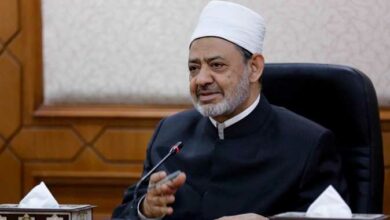Eight months ago, Egypt's military ruler was a hero to the masses for taking their side in the revolt that toppled Hosni Mubarak. Today he is vilified as a new autocrat, wielding military might against the people just like Mubarak himself.
"Get out, get out, field marshal," Christians chanted as they buried their dead after troops raced armored vehicles into a crowd on Sunday to disperse a Christian protest over a church attack. The clashes killed 25 people. Some were crushed.
The field marshal is Mohamed Hussein Tantawi, 75, Mubarak's defense minister for two decades and now the leader of the military council that took power in Egypt after Mubarak was driven out by February's popular uprising.
To Christians and Muslims alike, the army's reaction during Sunday's demonstration was as brutal as the police tactics used against anti-Mubarak protests.
The clashes pose one of the military ruler's sternest challenges, as public anger has boiled over. Politicians gathered to criticize the army's actions. The Internet, used to devastating effect against Mubarak, has been filled with condemnation.
"Egypt's Arab Spring has led not to democracy but to another cruel dictatorship," blogger Kareem Amer wrote.
It has added to growing impatience with Tantawi, a decorated veteran of the 1956 Suez crisis and the 1967 and 1973 wars against Israel, whose role was hailed when generals took charge in February with pledges to steer the nation toward democracy.
Since those early days, activists have fumed at newspaper photos of Tantawi opening a road and other projects, images that bear a striking resemblance to events attended by Mubarak.
When Tantawi exchanged his army uniform for a civilian suit and chatted with citizens during a stroll in downtown Cairo, he was lampooned by Web activists who said it was a stunt to quell anger over his testimony to a court trying Mubarak for killing protesters.
Despite a news blackout on publishing his testimony, lawyers said Tantawi's remarks backed Mubarak.
But what is irking activists and politicians is the slow pace of the transition that they see as a calculated bid by Tantawi and his generals to prepare for a transfer of day-to-day government without relinquishing power or submitting to civilian rule. The army denies any such intention.
Voting in a parliamentary election starts on 28 November but no date has been set for a presidential poll, leaving executive power with the military as long as the post remains empty.
"The revolution that happened on 25 January got rid of one person, one general, but the regime is still there, and is still operating," said Khalil al-Anani, an Egyptian political analyst at Britain's Durham University. "It was a half-revolution and half-coup."
Yet even as frustration mounts, the factor that may be keeping Tantawi and the Supreme Council for the Armed Forces in place is that Egypt's fragmented political landscape offers few alternatives for steering the nation through the transition.
"Now we are in a big crisis because it is very difficult to have a second wave of the revolution because of the fragmentation… in the political scene," said Anani.
When protesters drove Mubarak out, the military was virtually the only institution of state to survive intact. Mubarak's ruling party collapsed and political forces were too weakened or disorganized after years of repression to fill the vacuum.
"Although there are many decisions and actions which give cause for concern, on balance, [Tantawi] should probably still be given the benefit of the doubt," said one Western diplomat.
"He and [the army council] remain the person and only institution still capable of navigating Egypt's transitional path," he said, although he added that the army needed to offer a clear timetable for handing over power.
Under the process so far outlined, staggered voting for the upper and lower house of parliament lasts until March. Then a constitution will be drawn up by an assembly picked by deputies. Only then will a presidential poll be held, which may not be until the end of 2012 or early 2013.
The army insists it is committed to the transition. That was repeated at a meeting of the military council on Monday, following the clashes between Christians and military police.
But that commitment is increasingly being called into doubt as long as no date for a presidential poll is announced.
"People are disappointed in Tantawi after they thought he might lead the country to a real democracy," said analyst Anani.
Tantawi, who said little in public during Mubarak's rule but often appeared by his side at military parades and other events, was too close to the former president to be personally popular with protesters who led the uprising in Tahrir Square.
But a desire for change and respect for the soldiers under his charge trumped concerns many may have had at the time he took power.
Some Egyptians still want the army in charge to restore order to a country battered by protests, labor unrest and a lapse in security. Yet public support has eroded steadily and it took another hammering after Sunday's violence.
"The partnership between the authorities, between the Supreme Council of the Armed forces, the cabinet, and the citizens, is over. It's over," said Amr Hamzawy, an activist speaking at a gathering on Monday in the wake of the violence.
That meeting, billed as an attempt to draw up a united response to the clashes, brought political forces together from across the spectrum but highlighted the fractious political landscape. Those involved failed to agree a final statement.




